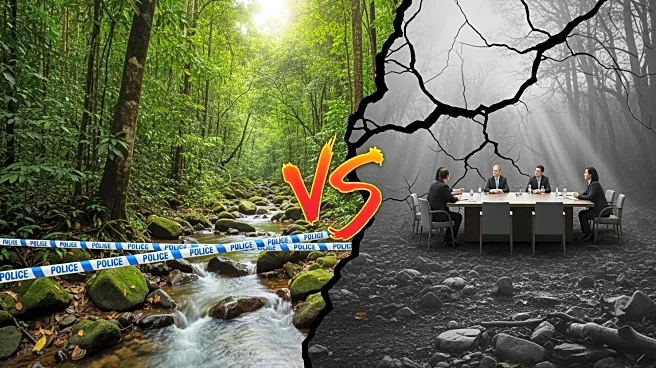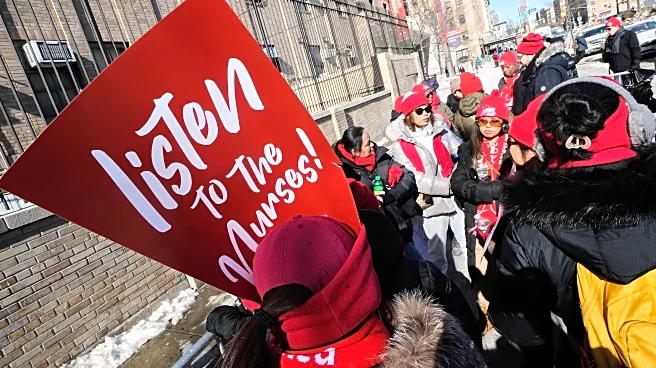What's Happening?
A court in eastern Indonesia has sentenced 11 members of an indigenous community for obstructing nickel mining operations, a decision that has been met with criticism from rights and environmental groups. Chief Judge Asma Fandun of the Soasio District
Court in Tidore City, North Maluku province, handed down sentences on October 16, with Sahil Abu Bakar, the group's leader, receiving five months and eight days in prison, while ten others were given two-month terms. The court found the group guilty of obstructing and disrupting the activities of a legitimate mining business. The villagers had been protesting against mining on their ancestral land, which they claim encroaches on customary forests, pollutes rivers, and destroys farmland. Rights advocates argue that the verdict criminalizes indigenous people who are defending their environment.
Why It's Important?
The sentencing of the indigenous villagers highlights the ongoing tension between industrial interests and indigenous rights in Indonesia. Nickel mining is crucial for industries such as stainless steel production and the manufacturing of lithium-ion batteries for electric vehicles, making it a significant economic activity. However, the expansion of such operations often leads to conflicts with local communities who rely on the land for their livelihoods. The case underscores the challenges faced by indigenous and environmental defenders in protecting their territories against powerful industrial entities. It also raises concerns about the erosion of legal justice and the criminalization of environmental advocacy, which could have broader implications for human rights and environmental sustainability in the region.
What's Next?
The verdict may prompt further scrutiny and debate over the balance between economic development and indigenous rights in Indonesia. Rights groups and environmental advocates are likely to continue their efforts to protect indigenous communities from industrial encroachment. The case could also lead to increased international attention and pressure on the Indonesian government to uphold human rights and environmental protections. Additionally, the mining company involved, PT Position, has stated its respect for the court's decision, indicating that it may continue its operations while navigating the legal and social challenges posed by such conflicts.
Beyond the Headlines
The situation in Indonesia reflects a broader global issue where indigenous communities often find themselves at odds with industrial development. The legal and ethical dimensions of this case highlight the need for policies that balance economic growth with the protection of indigenous rights and environmental sustainability. Long-term shifts may include increased advocacy for indigenous rights and environmental protection, potentially influencing policy changes and international standards regarding industrial operations in sensitive areas.

















